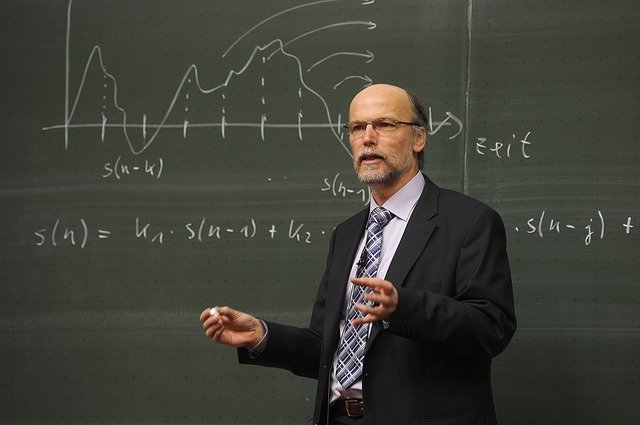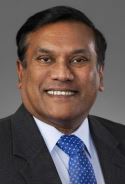
The honorific academic title “Professor” in Sri Lanka is confusing and mislead even educated professionals. Many of my friends, well-educated professionals in varied fields, refer to some individuals in Sri Lanka, especially those in the parliament and other endeavours, “He is a Professor”. The implication, pure and simple, is, “they, who are Professors, should know the stuff”!
This is conjecture and often completely wrong. Most ‘professors’ may know their chosen fields of study quite well, but they may lack expertise in other areas and the common sense to admit that.
The Sri Lanka media appears to keep referring to a few political ‘professorial’ people with another adjective added – calling them ‘senior professor’. The references galore, these days, given the debates on fertiliser and pesticide bans, organic agriculture and other topics that fall within the scientific realms. The references may also fall in different spheres of endeavour (humanities, arts, culture and finance). The Governor of the Central Bank is continually referred to and projected using his previous title ‘professor’.
The indifferent way the title is used seems to perpetuate the myth that the person referred to as ‘professor’ knows everything and will guide the nation’s future correctly. Hardly the truth, needless to say. Dubiously using this time-honoured title also produces a rather negative worldview. Although many people do not realise it, the world is watching as Sri Lanka goes through probably one of the most traumatic periods in its history. Make no mistake – The quality of Sri Lanka’s administrative and educational systems, as well as socio-economic
and civil society functioning, are presently under severe scrutiny.
A somewhat confusing title called “Senior Professor” also evolved within the University administration in Sri Lanka in the new millennium. Some Australian academics have asked me who these people are. Correct me if I am wrong – but my answer has been that they are recognised by Sri Lanka’s Educational authorities (The University Grants Commission) as ‘seniors’ service-wise, rather than academic brilliance.
The UGC Circular No. 05/2015 issued on 28 May 2015 appears to be the latest in this regard, and, again, that’s the best information I have. One who has reached the status of a “professor” by merit or by filling a cadre position needs to serve a minimum of 8 years in that position. There is a second requirement – 20 publications in ‘indexed journals. This is really baffling. One has to assume that the ‘professor’ already has those and plenty more! The circular does not stipulate the said 20 publications should be ‘post-professor’. See the confusion? It beggars belief that such anomalies continue to date unchallenged.
A comparable situation is hard to find. The Australian framework for attaining an ‘Associate Professor’ or ‘Professor’ status simply cannot be compared. The Australians, as in other developed countries, ask for evidence of outstanding and unquestionable academic contributions and peers’ recognition. In other words, brilliant scholarly contributions via book chapters, keynote addresses, participation in expert panels, and the like, coupled with students’ recognition for teaching and guidance. The elevation to a position of ‘professor’ is also anchored by the proof of a significant number of papers published in “peer-reviewed” global journals, not just “indexed journals”.
Those of us who are Journal editors know that any “predatory journal” can get indexation by paying money. That’s a topic for another day and time, but the Sri Lankan UGC should be aware of this. They should also study the extraordinary improvements that have been made by our neighbour – India and its UGC. In this regard, we should get some help from ‘big brother’ India. Publishing in dubious “indexed” journals is not enough to recognise merit, peer acknowledgement and global standing.
My point is a weighty category like ‘senior professor’ is not common in the systems we generally follow in other educational matters, i.e. the American, British Commonwealth countries, European or Australia-New Zealand systems. I don’t think our Sri Lankan UGC will change this terminology. It’s simply not the way the government operates. Still, it does not stop me from wondering why those diligent academics on the island, including previous vice-chancellors and the like, have not brought this matter up for UGC to consider.
More importantly, media and other commentators and the public need to be aware that the title “senior professor” reflects the length of service than academic achievements. In some countries, seniority in service is simply recognised by administrative classes – Grade I, Grade II or, in Australia – Level D (Associate Professor), Level E (Professor) and the like. If Sri Lanka’s education system, once the envy of the developing world, expects recognition globally, it needs to revamp these dubious terms and make them more meaningful. Needless to say, the criteria for recognising academic achievements should be much higher and on par with at least India.
Some people have asked me, after I left academia in 1993, whether I retain my title “Associate Professor”, which I earned by merit through the then UGC’s system in 1990. My answer has been and always will be – a resounding “no”. I prefer to be referred to as a “Dr.” reflecting a real academic qualification. As I moved out of academia into other positions, it would have been silly to be continually called a “professor. However, that didn’t stop some of my closest friends from calling me ‘professor’ more as an endearing term.
In the USA, the title “professor” is used only in academia, generally in oral address – as a courtesy given by others– rather than used by you in writing or when presenting one’s own name. Those in Sri Lanka who use the title “professor” as authors of books and reports to entice readers should ponder this unsavoury habit. There are many books where authors, perhaps, are encouraged by publishers to use the title. It is unnecessary to sell books and places Sri Lanka in a poor light among global readers.
A ‘retired professor’ or someone who vacated a post as a ‘professor’ like me should not use the title. The world’s best practice is to fall back to one’s highest tertiary degree qualification – either a Doctorate or a Masters degree. A student or others may still refer to or greet you as a “professor”. There is no harm in it. Within our culture, it shows respect, courtesy, and perhaps even deference to someone who might have taught you something at a particular moment. Our value system, within all beliefs and faiths, places parents, elders and teachers at the top of any scale of reverence.
When Sri Lanka is gripped with Covid and a financial crisis, some may argue it is anachronistic to discuss these titles. But I beg to differ. The constant reference by concerned people and media commentators to various ‘pseudo experts’ as ‘professors’ is the crucial issue here.
It shows that as a country, we are far backward in every way than the public realises. Unless corrected in some way, advice received from questioningly qualified people could also mislead the country’s future trajectories not just in organic farming, fertiliser bans and finance but in all fields.
Nimal Chandrasena, Ph.D.
(former associate Professor of Botany, University of Colombo)
Nimal.chandrasena@gmail.com
17 July 2021
You might be interested to read the article”
It is on Page 17.
http://epaper.island.lk/paper/2021/07/25
 Dr. Nimal Chandrasena – The author was a former Associate Professor of Botany by Merit (Weed Science), University of Colombo,Sri Lanka. He obtained his Ph.D. in Weed Science (1983) from theSchool of Plant Biology, University of North Wales, Bangor, U.K. Heis domiciled in Australia and has served in various governmentalpositions and functioned as a Principal Scientist in several globalConsulting firms. He is currently the Editor-in-Chief of the international Journal – Weeds.
Dr. Nimal Chandrasena – The author was a former Associate Professor of Botany by Merit (Weed Science), University of Colombo,Sri Lanka. He obtained his Ph.D. in Weed Science (1983) from theSchool of Plant Biology, University of North Wales, Bangor, U.K. Heis domiciled in Australia and has served in various governmentalpositions and functioned as a Principal Scientist in several globalConsulting firms. He is currently the Editor-in-Chief of the international Journal – Weeds.






